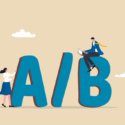
An effective job description is a working document that can be enhanced and changed as you pick up new skills in the role, explains Nicky Christmas
More often than not job descriptions for Assistants are sketchy at best leaving us with more questions than answers.
- What does “and anything else that might be needed” actually mean?
- What are “ad-hoc duties”?
- How flexible does an Assistant need to be and what does “juggling multiple priorities” really involve?
Along with these generic phrases Assistants’ job descriptions can also be poorly written, focusing on a standard set of skills rather than the real role responsibilities. They can also list what should be achieved by an Assistant without much detail of how to go about it.
In many instances, we have to read between the lines to truly understand the role requirements or we have to seek clarification once we are employed in the position. So with such generic and often vague job descriptions,
- How do Assistants understand what is expected of them and then meet and exceed those expectations?
- Without a real understanding of what our managers want from us, how can we perform well from the very first day?
- Looking at our profession and the challenges we face do incoherent job descriptions add to the lack of recognition and reward in the industry?
As I said there are more questions than answers when it comes to an Assistant’s job description!
When a job description is posted it is often based on the incumbent Assistant or the Assistant before that. Organisations rarely start afresh with a job description because mostly they want someone similar in the role. Unless the previous Assistant has failed spectacularly the job description is not updated. Our industry is fast-paced and most Assistants are picking up new skills frequently, our job descriptions do not reflect this. There is no flexibility in the job descriptions, which can often lead to Assistants taking on more work without having an increase in pay or recognition.
Job descriptions can be useful for Assistants when they are applying for the role if only to help decide if they want the job in the first place and then to give a small insight into what type of questions might come up in the interview. Once the Assistant has the job does the description ever see the light of day again? If your job description isn’t particularly relevant to the industry, is only used to recruit you, and you never look at it again, well it is not worth the paper it is written on.
But what about a great job description? What happens if an Assistant is given an effective job description that is used to recruit him or her in the perfect role for their current skills? It is then used to help the Assistant settle into the role and is ultimately the foundation of every performance review and evaluation throughout their career. Would a good job description that is used by the Assistant’s executive to effectively manage them make a difference? Yes, I truly believe it would.
Assistants sometimes are not managed properly and can be taken for granted because they don’t know what is expected of them and neither does their manager. In my experience, this misunderstanding can lead back to a vague job description. If we can ensure the job description is relevant and is used correctly then I do think that will solve a lot of issues that Assistants and their managers have regarding the role. Having a solid working document will also help the Assistant and executive communicate with each other regarding expectations.
How do we do this?
Well if you have a vague job description that doesn’t describe your day-to-day activities the first thing to do is to take stock of all of your tasks, your skills, your qualifications and the experience you have built up over the years. Write everything down that you think will add consistency to the description. Then sit down with your manager and write a new job description. Assistants should not wait until their next pay review to do this because what exactly are you being measured against if not your job description?
I think a great job description for an Assistant looks something like this:
- A title that describes the role. Not just personal Assistant or administrative Assistant but also whom the Assistant reports to and a clear statement detailing how the relationship will work.
- A specific section outlining the job function and the purpose of the role with clear objectives. Why does the job exist and how does it fit into the rest of the organisational structure?
- A list of core skills, standards and requirements for the role including education, experience and knowledge.
- A list of the key duties. Along with everything expected of an Assistant but also any slightly unexpected duties. Does your manager want you to run personal errands? If so, it should be on the job description to avoid any confusion. Tasks that take up only a small amount of time must still be added.
- The responsibilities of the Assistant, starting with the most important.
- The key results expected from the Assistant. This should be measurable, and achievable but also challenging so that the Assistant can grow with the role.
- The qualifications and experience required for the role. As the role grows and the Assistant becomes better qualified through training, their Executive will become more reliant on these new skills. Ensure new qualifications and skills are added to the job description.
Once an Assistant is in the role and is settled a review of the job description must take place anyway. If there are any skills that you have that would enhance the role speak to your manager and ask that they are included in your job description. Remember an effective job description is a working document that can be enhanced and changed as you pick up new skills in that role. I would suggest Assistants take their job description into every meeting with their manager. The document should be constantly referred to, discussed and changed as and when you take on new tasks.
Job descriptions can become redundant pretty quickly, especially if the organisation changes its strategy or switches its focus to different parts of the business. This is particularly true of an Assistant’s job description because our duties reflect those of our executives, the group most affected by changing strategies. To make sure our job descriptions are relevant to our executive’s objectives we should review them once a year. Ideally, this should be aligned with performance reviews and objective setting for the year ahead.
Job descriptions for other professions leave room for staff to have flexibility in the role and for the organisation to ask more of the employee than is in the specific duties. This is certainly the case for Assistants but I think this is an issue for our profession because it can be easily taken advantage of. We all have to do things outside of our job description but when reviewing your document do ask that your manager is as detailed as possible. Once you are both aware of what is expected you can add a little flexibility to the position. The most important thing is that the job description continues to be coherent and current.
An effective job description for Assistants is vital. It allows us to understand what is expected of us from the very moment we enter into the role. We must use the job description as a working document, which can be altered and updated as we become more established in the role. The job description must be coherent, focused and detailed so that we know what we have to do to be successful and our managers know what we do every day, how to manage our activities and how to review and reward us accordingly.
So why not dig out your job description and see how relevant it is to you today?”













Hurrah! At last I got a weblog from where I be capable of actually obtain valuable data regarding my study and knowledge.